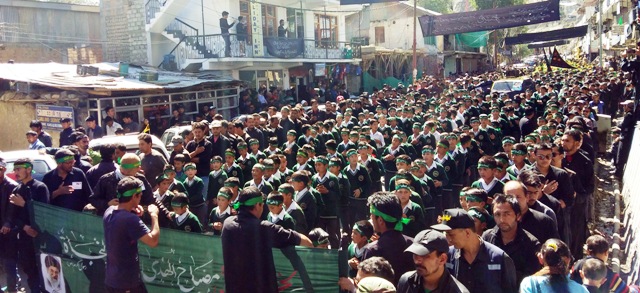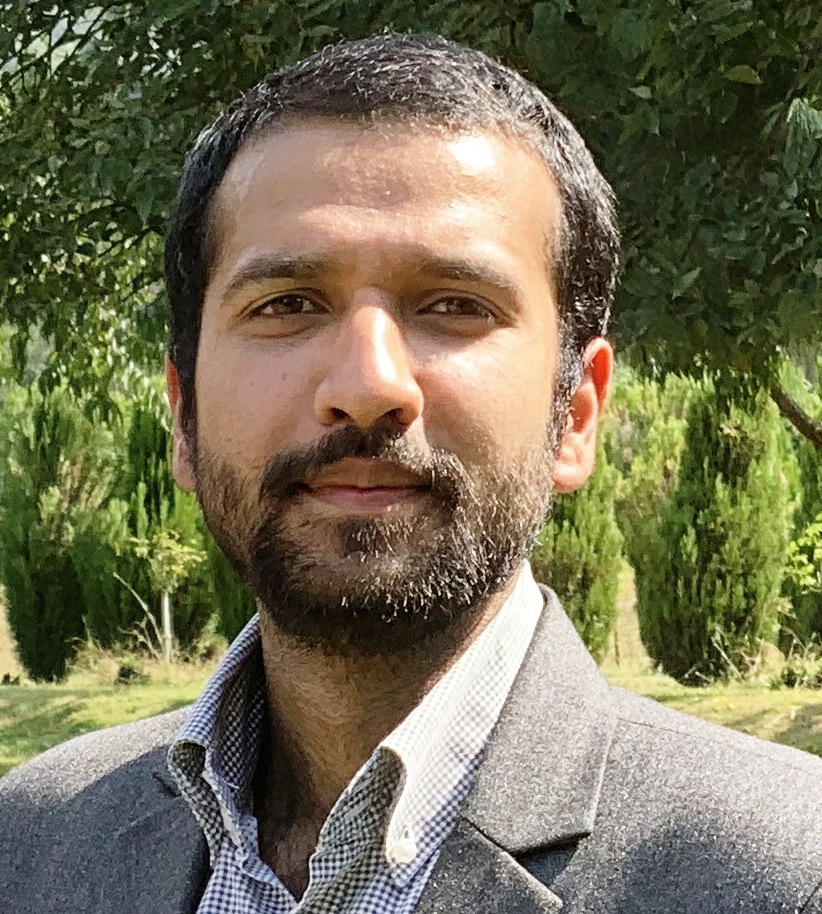by Mirza Sharafat Hussain Beigh
The Kashmiri marsiya is a highly informative genre, yet difficult to understand due to jargons, excessive metaphors and noticeable semantic noise sometimes resulting in aberrant decoding
Muharram is the time in Kashmir when the Muslims shove vividly coloured dresses behind; when the screams and pangs burst from the Imambaras creating an aura of melancholy. Muharram is the first Islamic month, called Muharram-ul-Haraam. This year the massive congregations are not taking place but the values that Azadari upholds have not fallen apart.

A Muharram process in progress. This photograph was taken on September 30, 2017. KL Image: Bilal Bahadur
Kashmir being home to many religious factions has nurtured diverse faiths at one time in a celebrated harmonic state – all faiths practice their religion accompanied by the corporeal presence of reverence for each other’s school of thought. Muharram too has been a historical commemoration being practised by Muslims from the period Shi’ite Islam with the advent of marsiya-khwani in Kashmir around the fourteenth century. Since marsiya writing was in its nascent stage in Kashmir in that century, but gradually it improved and reached its zenith. Through these elegies, Muslims demonstrate their stand for righteousness.
Commemoration of martyrdom in Muharram in Kashmir is in certain ways different from the rest of India. Considered to be disciplined mourning ceremony, Muharram in Kashmir valley invites the attention of religious scholars and political leaders across the spectrum.

Police used tear gas canister to quell the mourners This picture was taken on October 1, 2017. KL Image: Bilal Bahadur
As the moon of grief is sighted congregations formally start in to mark the first night that precedes the month of Muharram and new Islamic new year. From the dusk, Shi’ites gather in Imambara to begin the commemoration with praises in the name of Allah called Hamud (hymn), then follows Naat (encomium in the name of the last Prophet of Islam) and figurative praise in the name of Imam Ali usually called madah.
The modern era that demands the propagation of Islamic knowledge and spiritual wisdom while performing any ritual has nowadays offered eminent space to clerics and scholars to speak about values of Karbala.
Each night especially for the first ten days of Muharram, after the recitation of hymns and encomiums, lectures by scholars follow. Wach night the majlis ends at marsiya recitation. The marsiya is recited by a known and trained marsiya khwan who is primarily a vocalist professionally called Zakir specialized in chanting the Kashmiri marsiya followed by group mourners called Pach Khaan.
The Kashmiri marsiya is a highly informative genre, yet difficult to understand due to jargons, excessive metaphors and noticeable semantic noise sometimes resulting in aberrant decoding. Nevertheless, marsiya is intensely accompanied by chest-beating and flagellation. The same routine continues until the Ashura is commemorated in the form of processions from different districts of Kashmir.

Mirza Sharafat Hussain Beig
This year mourners in Kashmir were not able to assemble as per conventions thereby disrupting the popular culture of organizing Muharram functions. Processions have been cancelled and congregations highly abated in number, preventive measures have been encouraged to contain the transmission of coronavirus. Zuljanah processions have been willingly cancelled for the first time by the authorized organizations, yet the fervour and zeal to stand with Hazrat Husayn-ibn-Ali has intensified more as people have taken to social media and satellite television channels preaching the values laid by the Martyr of Karbala Husayn-ibn-Ali.
(Author is descendent of Kashmir’s prominent elegy writer’s family, and a post-graduate alumnus of Media Education Research Centre, University of Kashmir. The opinions expressed in this article are those of the author’s and do not purport to reflect the opinions or views of Kashmir Life.)
from Kashmir Life https://ift.tt/32Cxg6N
via IFTTThttps://kashmirlife.net
No comments:
Post a Comment